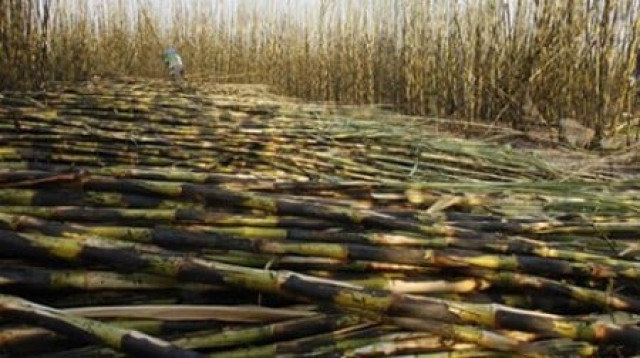Sugarcane generation may not be the answer

The mills will use bagasse, which is sugarcane waste, as fuel for generating electricity. They are initially expected to generate up to 800 megawatts, which will then be increased to 3,000MW over the next several years.
A rate of 9.28 cents (Rs7.85) per kilowatt hour has been set for the sugar mills that will be producing electricity. However, sugar mill owners have expressed dissatisfaction over the tariff offered by the government.
“We had demanded 11 cents, but the government offered 9.28 cents. Producing power at this rate will not be feasible,” said Iskandar Khan, chairman of the Pakistan Sugar Mills Association. The tariff range for power plants fueled by oil is between 13 and 15 cents per kWh.
Gaspowered plants receive 8 cents per unit whereas coal-powered plants get between 8 and 10 cents and hydroelectric plants get 8 to 9 cents. The initiative may help resolve the acute power crisis in the country at a time when people are enduring at least 4 to 5 hours a day of power outages. In some parts of the country, power disruptions extend for up to 10 hours a day.
The mills gave a proposal for power generation to the National Electric Power Regulatory Authority (NEPRA) in January 2008. The regulator gave its final approval to the plan, with some modifications, last week. The delay has been criticised by some in the sugar industry. “Had the proposal been given the go-ahead at that time, we would have been generating 1,500 megawatts now,” Mr. Iskandar Khan told The Express Tribune.
Mr Khan said that the mills will need around 18 months to make preparations and start power production. They will have to import machinery including pressure boilers and turbines for producing power. He added that a delegation would visit the United States in May to examine the operation of the sugar mills’ power plants there.
With the start of power generation, he said, the sugar mills would work the whole year instead of the present practice of operating during the cane crushing season, which starts from October and continues till April. Tariff hikes and the VAT In another development, an International Monetary Fund team has arrived in Pakistan to discuss the delay in imposition of value added tax and increase in power tariffs.
The lender wants the imposition of VAT from the next fiscal year beginning July 1 at the rate of 15 per cent. This will replace the 16 per cent general sales tax. Under the new tax structure, the government will withdraw all exemptions enjoyed by different sectors, including the textile sector, which is currently exempt from the GST.The All-Pakistan Textile Mills Association (APTMA), a lobbying group for the industry, has strongly opposed the new tax, saying it will hamper exports.
In an agreement with the IMF under its $11.3b loan programme, the government had to raise power tariff by 6 per cent on April 1. The government is withdrawing a subsidy given to household electricity consumers and has already increased the tariff by 6 per cent in October last year and 12 per cent in January. The government also increased the power tariff by Rs1.02 per unit under a fuel cost adjustment at the end of March.



















COMMENTS
Comments are moderated and generally will be posted if they are on-topic and not abusive.
For more information, please see our Comments FAQ